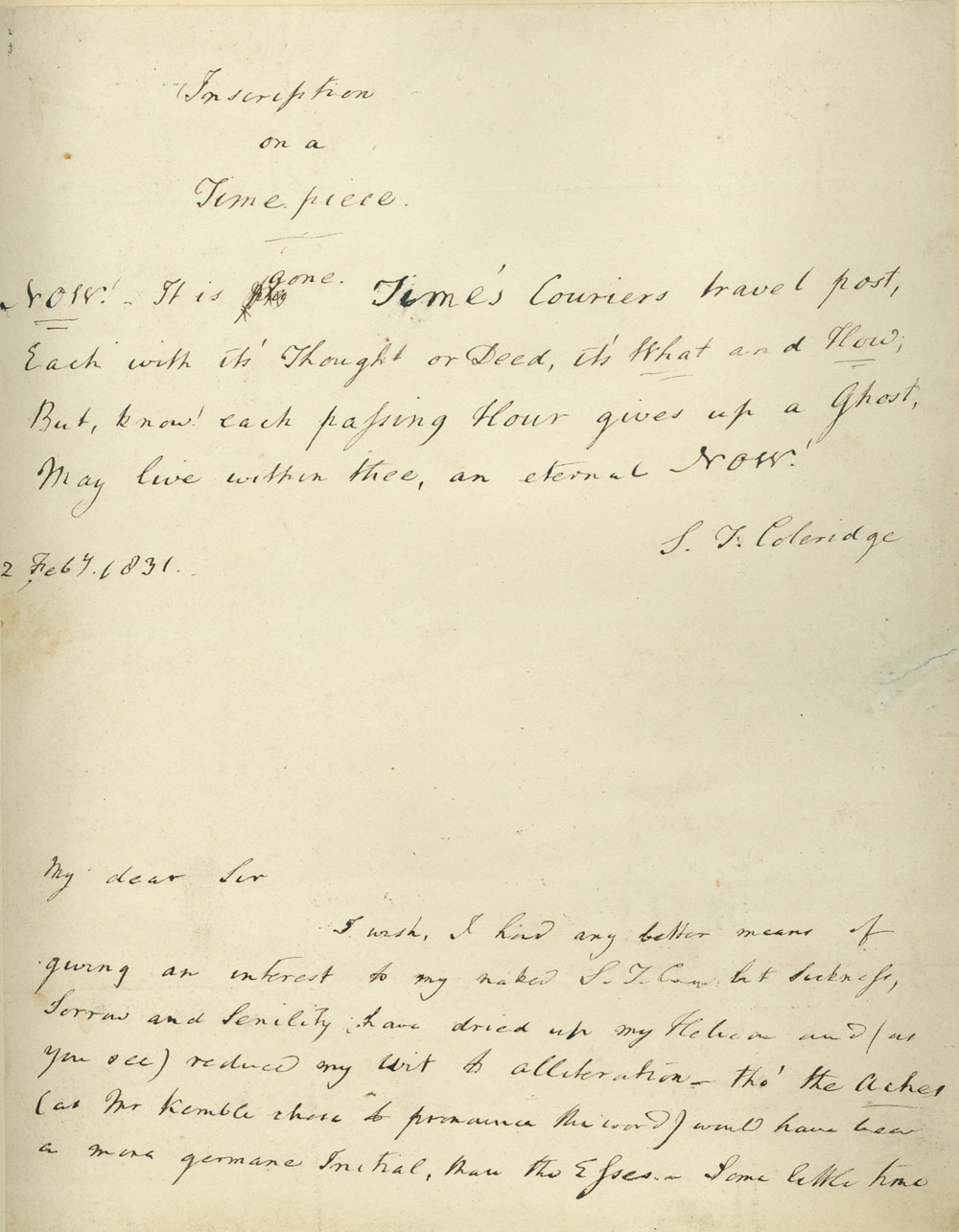Sometime probably in the late 1890s, an unknown dealer or private collector assembled about 200 letters that were bound into volumes and titled Sir Walter Scott: Letters of his Friends and Contemporaries. The letters aren't to, from, or even necessarily about Scott, but they provide an artifactual record of both his personal circles and the leading public figures of the day. This includes letters from Scott's friend and fellow poet Robert Southey, a specimen of Queen Victoria's handwriting, a cheque for £20 signed by Sheridan, and a note from the Duke of Wellington.
But one of my favorite items in this collection is a poem in the hand of a very aged Samuel Taylor Coleridge. It is titled "Inscription on a Time-piece" and it is dated 2 February 1831, about three and a half years before his death.

This is a later iteration of the short poem; the original, dated 15 November 1830, has not been located, but there are seven other holograph copies still extant. The poem was only published posthumously, and the Morgan's copy differs significantly -- in word choices, but not in structure or meter -- from the poem as it was first printed in 1835. For instance, here the first line reads: "Now! It is gone. Time's couriers travel post," but it was originally printed as: "Now! It is gone -- Our brief hours travel post."
Following these variant lines, Coleridge has begun an enigmatic and apparently unpublished letter. He says: "I wish I had any better means of giving an interest to my naked S.T.C., but Sickness, Sorrow and Senility have dried up my Helena and (as you see) reduced my Wit to alliteration..." We don't know to whom Coleridge is writing, but it sounds to me as if he is responding to a request for an autograph or keepsake from a casual acquaintance. This may account for the extent of the variations in his lines above -- perhaps he jotted them down quickly without much thought in order to reply to his unknown correspondent. The letter breaks off here, and any clue that the rest of it may have given about the identity of the recipient is now lost.
For more information about this item, click here.